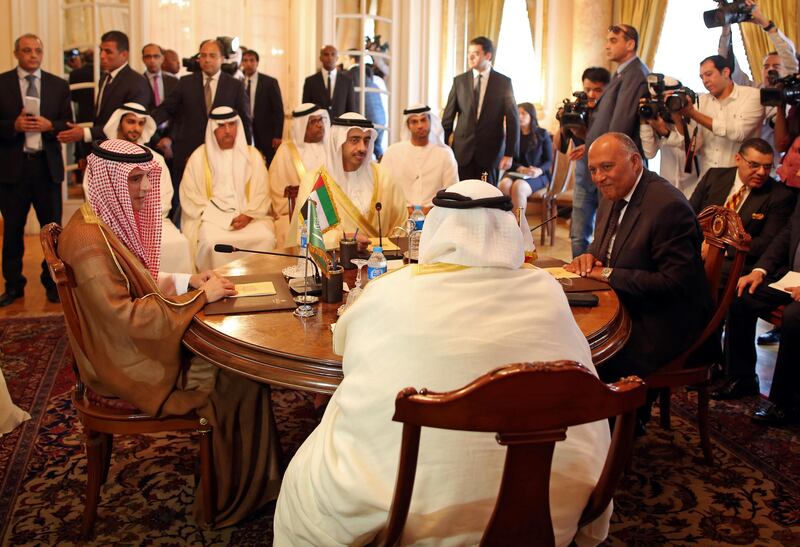The four countries staging a boycott of Qatar said on Friday that they would take all necessary political, economic and legal measures to pressure Doha into falling in line with GCC policies.
As the boycott enters its second month, Saudi Arabia, the UAE, Bahrain and Egypt said Qatar’s refusal to accept their conditions showed its willingness to undermine the interests of the region and its own people.
Qatar continues to attempt to destabilise the region and refuses to cease its support of terrorism and extremism, the four Arab countries said in a joint statement.
They said further measures would be taken "as seen appropriate and in timely manner" to "serve their rights, maintain their security and stability and protect their interests from the Qatari government's hostile policies".
The standoff has alarmed the United States, for whom all five countries involved are key regional allies. The US state department said the crisis could continue for months and possibly even intensify, although observers say a military intervention is unlikely.
“We remain very concerned about that ongoing situation involving Qatar and GCC countries. We’ve become increasingly concerned that that dispute is at an impasse at this point,” state department spokeswoman Heather Nauert said on Thursday.
She said secretary of state Rex Tillerson would visit Kuwait on Monday after the G20 summit in Hamburg to discuss the crisis with Sheikh Sabah Al Ahmed, Kuwait’s ruler and chief mediator in the crisis.
Joint mediation efforts between the Kuwait and the state department are expected to increase as the US begins to unify its approach to the crisis. The state department has consistently called for mediation whereas president Donald Trump has previously backed the need to address the funding of terrorism from Qatar.
Mr Trump discussed the crisis in phone calls with leaders of Saudi Arabia and Qatar, as well as the crown prince of Abu Dhabi, on Sunday, reiterating the importance of "stopping terrorist financing and discrediting extremist ideology", according to the White House.
In their statement on Friday, the four Arab states blamed Qatar for undermining Kuwait's attempts to resolve the dispute, saying that Doha “leaked the list of demands, in order to thwart the efforts of the State of Kuwait.”
They said the government of Qatar "worked to thwart all diplomatic endeavours and efforts to resolve the issue, showing its obstinacy and refusal to a settlement, which again reflects its intention to continue its policy that is aimed at destabilising and undermining the security of the region”.
Kuwait delivered a list from the four countries to Qatar on June 22 that contained their conditions for resuming trade, travel and diplomatic ties that were cut on June 5. A 10-day deadline for Qatar to respond was extended by two days on July 3.
Qatar's emir issued a response in hand-written letter delivered to the Kuwaiti emir earlier this week. While the contents of the letter have not been disclosed, the four countries described it as "negative" and failing to appreciate the gravity of the situation.
The US secretary of defence James Mattis discussed the "importance of de-escalating tensions" in a phone call with the Qatari defence minister Khalid Al Attiyah on Friday.
The Pentagon said the two officials "affirmed the strategic security partnership" between their countries and Mr Mattis emphasised the importance of Qatar's contributions to the US-led coalition fighting ISIL.
Qatar hosts the largest US airbase in the region and recently contributed cargo aircraft to the campaign against ISIL.





